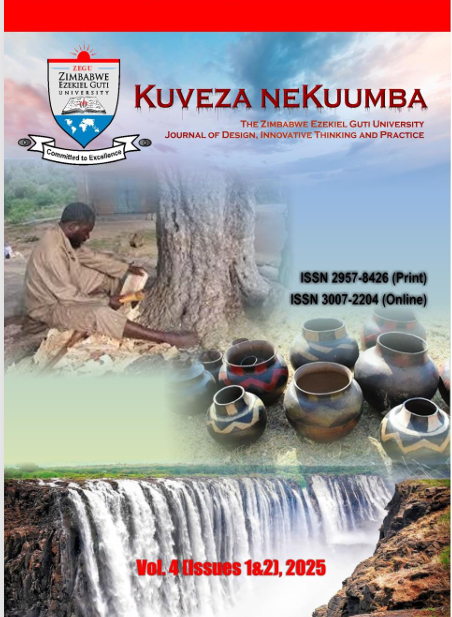Early Childhood Education as an Instrument for Design Thinking: Cases and Examples
DOI:
https://doi.org/10.71458/2xvg1z11Keywords:
child learning, critical thinking, innovation, low income communities, quality education, ZimbabweAbstract
The United Nations Convention on the Rights of the Child (UNCRC) has adopted Early Childhood Development (ECD) as a child rights issue, obligating every nation to implement it for it promoted design thinking. Though the 2004 ECD policy in Zimbabwe calls for the universal adoption of the ECD programme, most low-income rural communities still lacked behind, thus depriving children their right and opportunity to thrive. This qualitative study adopts the collective case study design and triangulated interviews, focus group discussions and observations, was undertaken to understand the challenges and to ultimately proffer suggestions on how ECD education could be utilised as an instrument for design thinking. The design thinking model informs the study. The themes that came up from the educators, parents and learners who participated revealed that, ECD packages, including play, promote creativity, confidence, collaboration and cooperation in learners and these were deemed important for design thinking. Even though, the mandate of ECD is misconstrued, hence less supported by some parents. Resources were inadequate and ECD centres were far apart, thus limiting some learners to enrol early. Experiential pedagogy innovation shows, community advocacy and policy formulation, increased ECD centres and extensive training of ECD specialists are recommended.

